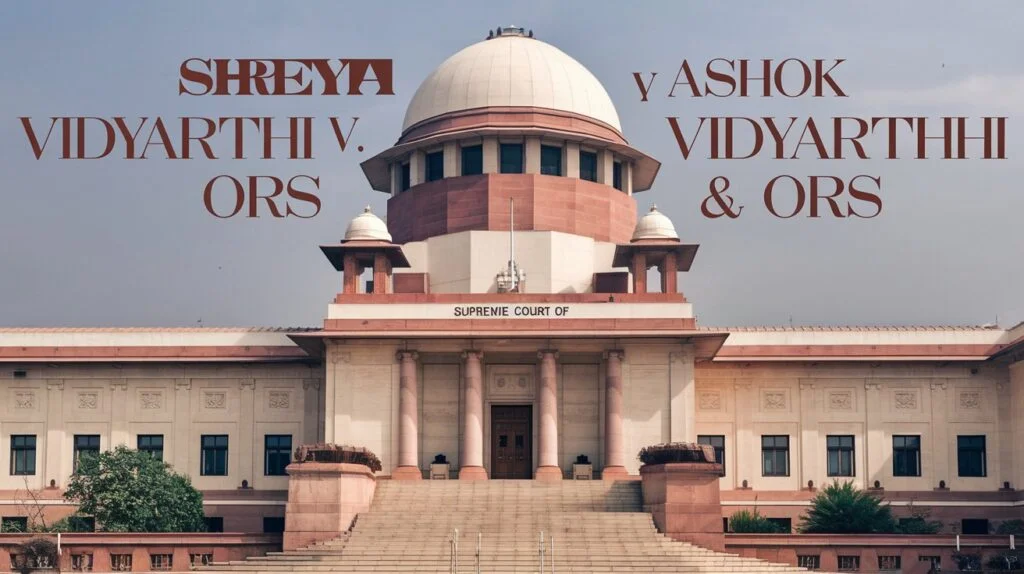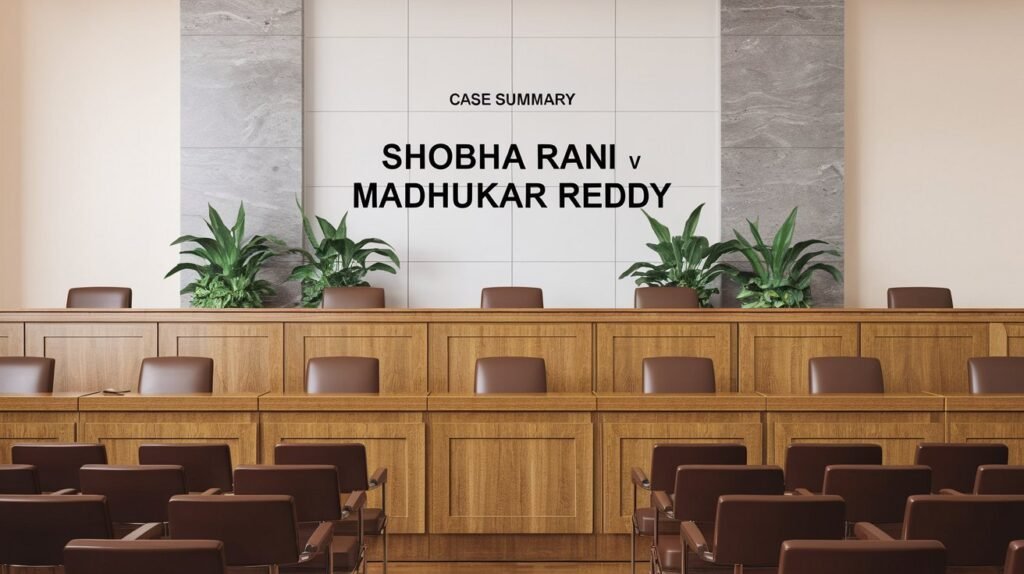Vishnu Dutt Sharma v. Manju Sharma AIR 2009 SC 2254 (Case Summary)

In this case, the Supreme Court of India addressed the issue of divorce on the grounds of cruelty and irretrievable breakdown of marriage. The Court considered whether irretrievable breakdown could serve as a valid legal ground for divorce under the Hindu Marriage Act, 1955, despite its absence as an explicit provision in the Act.
Table of Contents
ToggleFacts of Vishnu Dutt Sharma v Manju Sharma
- Vishnu Dutt Sharma (the appellant) and Manju Sharma (the respondent) were married on 26th February 1993. A child was born to them in December 1993.
- The appellant alleged that the respondent behaved cruelly, left the matrimonial home, and refused to return.
- The respondent, in her defense, claimed that she was mistreated by the appellant and his family, including incidents of physical assault and threats.
Issues framed
- Whether the appellant was entitled to a divorce on the grounds of cruelty under Section 13(1)(i-a) of the Hindu Marriage Act, 1955?
- Whether the irretrievable breakdown of the marriage could be considered as a ground for divorce, despite it not being explicitly mentioned in the Act?
Subordinate Court Judgment
Vishnu Dutt Sharma filed for divorce, but the trial court dismissed his case because he was unable to provide proof of Manju Sharma’s alleged cruelty. The court determined that there was insufficient evidence to establish that the respondent’s actions qualified as cruelty in accordance with Hindu Marriage Act Section 13(1)(i-a).
On appeal, the High Court upheld the trial court’s decision, rejecting the appellant’s plea for divorce. The High Court observed that the evidence did not support the appellant’s claim of cruelty and ruled that granting a divorce based on irretrievable breakdown of marriage was not possible under the current legal framework, as this ground was not recognized in the Hindu Marriage Act.
Judgment of Vishnu Dutt Sharma v Manju Sharma
The Supreme Court primarily examined the provisions of Section 13 of the Hindu Marriage Act, 1955, particularly the grounds for divorce related to cruelty and whether irretrievable breakdown could be recognized as a valid ground for granting divorce.
The Supreme Court reaffirmed that irretrievable breakdown is not a legally recognized ground for divorce under the Hindu Marriage Act. The Court emphasized that it cannot add or amend legal provisions, which is the role of the legislature.
The Supreme Court dismissed the appeal, stating that the appellant had failed to establish cruelty by the respondent and that irretrievable breakdown was not a valid ground for divorce. The Court held that such an amendment to the Act must come from Parliament, not through judicial intervention.
In a significant advancement, the Supreme Court of India, in the case of Mansi Khatri v. Gaurav Khatri (2023), granted a divorce on the basis of irretrievable breakdown of marriage by exercising its powers under Article 142 of the Constitution. The Court observed that the marriage had irretrievably broken down and, to render complete justice, dissolved the marriage while also settling matters of permanent alimony and quashing pending legal proceedings between the parties.





